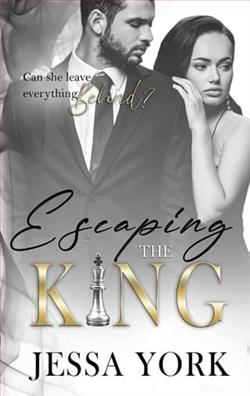Page 19 of Follow My Voice
“I…” A pause. “It’s just…” Another pause. He doesn’t say anything, nor does he pressure me to continue. He just waits for me, and then it dawns on me. “My mother,” is all I say.
He nods. “Your mother?”
The sight of her holding her chest, not being able to breathe before she died comes back to haunt me. “She couldn’t breathe—she clutched her chest, and then she died.” My voice breaks a little.
His gaze softens. “I’m so sorry you had to witness that, Klara.” He hands me a tissue as silent tears roll down my cheeks. “What’s the emotion overwhelming you right now?”
“Sadness and despair,” I admit, sobbing now.
“Because you couldn’t do anything for her at that moment?”
“Yes, I just watched and screamed for my sister.” The shame that statement ignites in me brings out more tears.
“It was out of your control.” His voice is softer, compassionate.
“I should have done something, been faster, I don’t know.” I wipe my tears with the tissue.
“And you think that would have changed anything?” His question stings a little.
“Maybe.”
“Do you really believe that?” he asks, and I don’t answer. “Klara, your mother was very sick. She was at the end of her life, and from what you have said before, she was ready to rest. She had a beautiful conversation with you to make sure this wouldn’t happen: the blaming, the guilt, the should haves. No matter what you did orthink you should have done, she was still going to die. You couldn’t control that.”
“I know,” I say, sniffling.
“This breakthrough is really important because now we know where this belief is coming from, and I want you to hear these following words and internalize them as much as possible: You are not your mother.”
I stop breathing. Words have power, I learned that through therapy, and certain statements hit harder than others, like this one.
“I am not my mother,” I voice softly.
“You went through some of the same pains, but you are not her. You’re here with no medical reason to stop breathing.”
Finding out the root of some of my fears is painful, but a relief comes after it, because the chaos and fear-based scenarios in my head lose strength. Knowing the root of them makes them less scary and more reasonable. Dr. B. and I discuss that belief before coming to the end of the session.
“Do you really think I’m ready to go to college, Dr. B.?”
“What do you think?”
“I don’t know. Maybe…?”
“Klara, the first day will be hard. I’m not going to lie to you. But it will get easier as time goes by, and eventually you won’t even remember the fear.”
“Do you really think so? Do you think I can have a normal life?”
“Of course. Did you think this would last forever? You went through something very scary and stressful that most women your age never have to face, but you’re working through it and you’re starting to heal. Nothing lasts forever.”
My heart fills with hope, but I’m still a little worried. “What if I have a panic attack in the middle of class?”
“If it’s something that can’t be avoided, you just have to wait for it to pass. You know it will pass.”
“I don’t want to make a scene,” I say.
“Well, if you feel a panic attack coming, go to a private place where you can do your breathing exercises to ride it out. I know it feels scary to be alone during one, but you know what it is, and you know that it will pass. I want you to focus on that part, and I want you to focus on your statements.”
“I am calm. I am safe. I am protected.”
“Yes, you are, Klara.” He smiles at me, and I return it.















